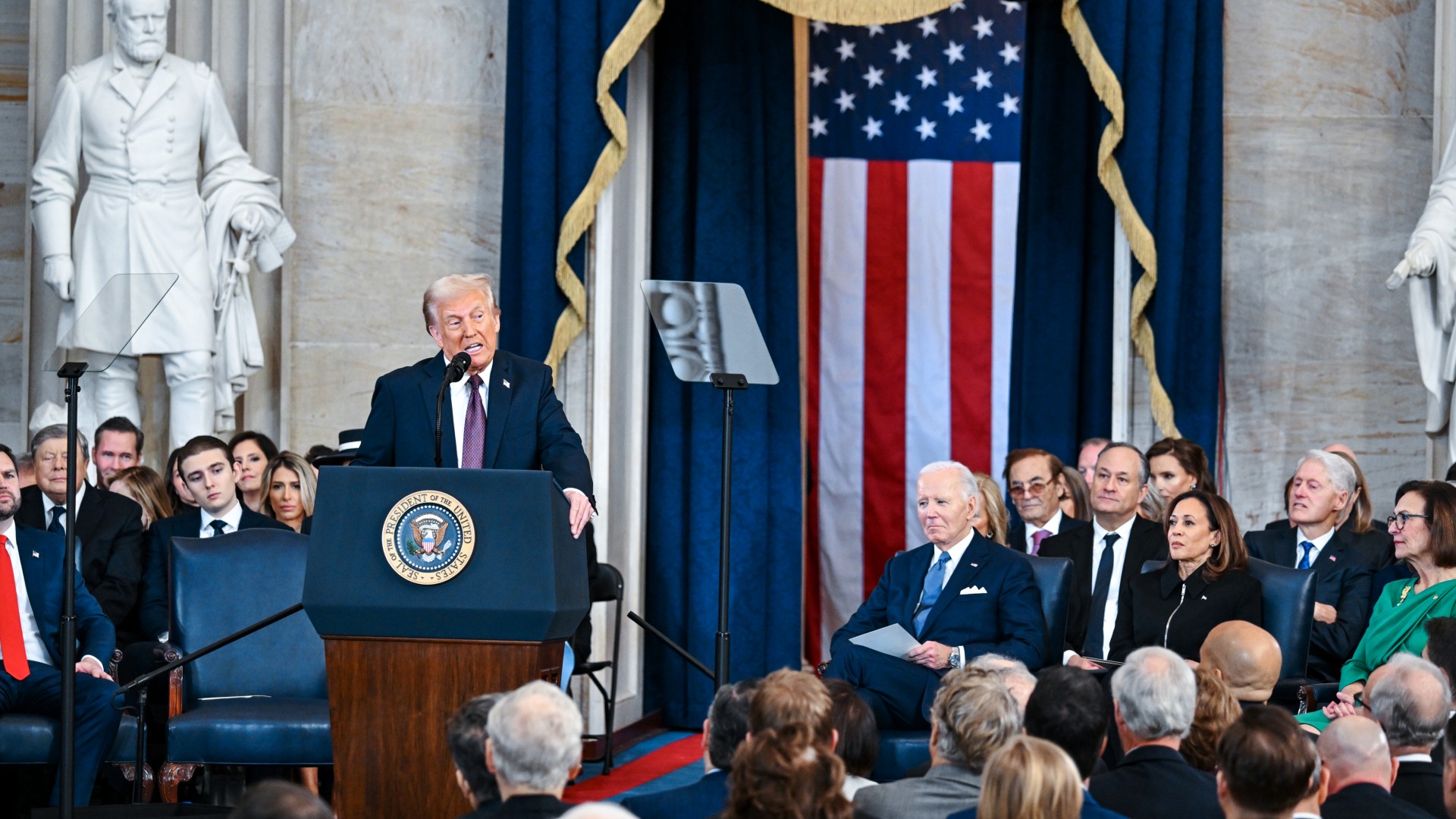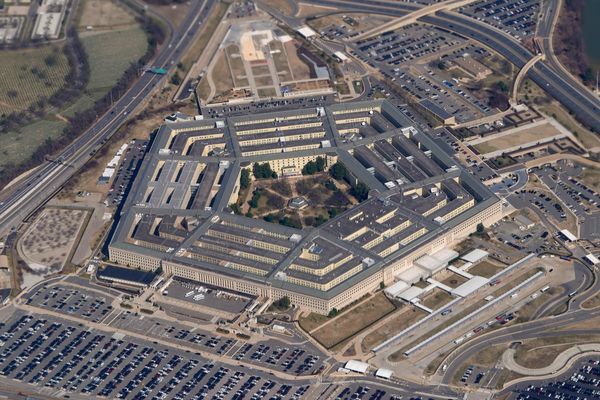
President Donald Trump wants to lead the United States to Mars.
After taking the oath of office to be sworn in as the 47th U.S. president on Monday (Dec. 20), Trump laid out his vision for the next four years in an inauguration speech that called for a return to American expansionism and exploration.
"My message to Americans today is that it is time for us to once again act with courage, vigor and the vitality of history's greatest civilization," Trump said during his speech inside the Capitol rotunda. "The United States will once again consider itself a growing nation, one that increases our wealth, expands our territory, builds our cities, raises our expectations and carries our flag into new and beautiful horizons. And we will pursue our manifest destiny into the stars, launching American astronauts to plant the stars and stripes on the planet Mars."

A philosophy of manifest destiny in the 19th century drove the American expansion across North America to settle what is now the United States. Trump's comment takes that concept and aims it into space.
"There's no nation like our nation," Trump said. "Americans are explorers, builders, innovators, entrepreneurs and pioneers. The spirit of the frontier is written into our hearts. The call of the next great adventure resounds from within our souls."
Related: Presidential Visions for Space Exploration

SpaceX CEO Elon Musk, who attended the inauguration, gave a huge smile and thumb's up in reaction to Trump's Mars comment. Musk has long said his goal with SpaceX is to send humans to Mars in a bid to make humanity a multi-planet species.
To that end, SpaceX has launched seven test flights so far of its massive Starship rocket, the world's largest and most powerful launch vehicle, the most recent of which occurred on Jan. 16. That Flight 7 test flight included the successful landing and capture of the Starship's huge Super Heavy booster, but the Starsip vehicle exploded during ascent. An FAA investigation into the anomaly is underway.
NASA has picked SpaceX's Starship to land its Artemis astronauts on the moon on the Artemis 3 mission no earlier than 2027, after years of delay. Musk has said SpaceX could attempt to launch its first uncrewed Starship to Mars in 2026.
Billionaire Jeff Bezos, founder of the private space company Blue Origin, also attended Trump's inauguration just days after Blue Origin successfully launched its own huge new rocket, called New Glenn, into orbit for the first time. NASA has tapped New Glenn to launch its next robotic mission to Mars, a double spacecraft mission called ESCAPADE.
Trump's inuaguration on Sunday marked his return to Oval Office after being elected as the 45th U.S. president in 2016. In 2020, Trump lost reelection to now former President Joe Biden.
In his speech, Trump pledged a sweeping rollback of Biden policies in his first days in office, including declaring a national emergency at the country's border to curb illegal immigration and measures targeted at transgender rights, among others. Trump, who was convicted of 34 felony counts related to falsifying records during his first campaign, is the first felon to serve as U.S. president.
During his first administration from 2017 to 2021, Trump gave substantial support to U.S. space security and exploration. He founded the U.S. Space Force as a new branch of the military to safeguard U.S. interests in space.
Trump also resurrected the National Space Council, led by then-Vice President Mike Pence, to push NASA and other U.S. space projects forward. The Biden administration continued the National Space Council under the leadership of then Vice President Kamala Harris, who attended NASA's first attempt to launch its first Space Launch System megarocket to the moon during the Artemis 1 mission in August 2022.
Trump's current Vice President J.D. Vance, who was also sworn in on Sunday, is now expected to lead the National Space Council, should the new Trump administration keep it going.
Trump has tapped billionaire Jared Isaacman, who has flown to space twice on SpaceX rockets on missions he personally bankrolled, as his nomination for the next NASA Administration. The agency's current chief Bill Nelson, a former Florida senator, announced his retirement Monday.
"Thank you to the NASA family, who embodies the can-do spirit that makes our country exceptional. It has been the honor of my life to stand and serve with you," Nelson wrote in a statement on X. "As I leave public office today after 53 years, thank you for the great privilege of a lifetime of serving the people of our country. I am humbled and grateful," he added.
Trump said he hopes the next four years will mark a turning point for the American people.
"We will live proudly, we will dream boldly, and nothing will stand in our way, because we are Americans," Trump said. "The future is ours, and our Golden Age has just begun."







